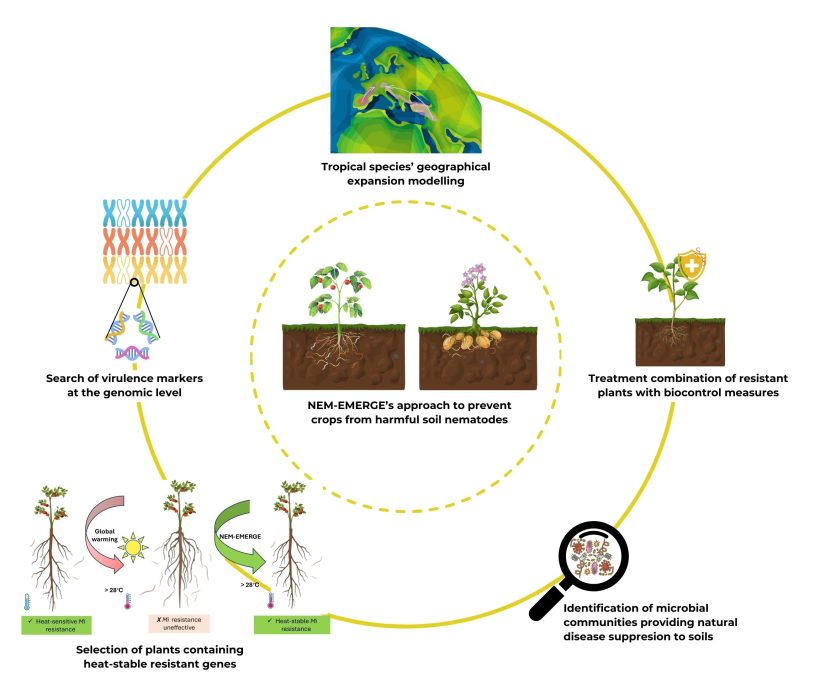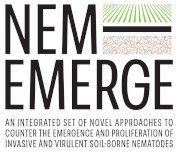The persistence of these nematodes in the soil and their complex life cycle on plant roots make their control extremely challenging (see the Background section for more information). A lack of knowledge of the ecological and genetic aspects of plant-nematode interactions underlies the current absence of economically durable methods for RKN and PCN control in both conventional and organic farming systems.
By filling these knowledge gaps using an interdisciplinary and multi-actor approach, NEM–EMERGE will develop and apply science-based solutions in conjunction with stakeholders in these sectors.
The NEM-EMERGE approach is centred around five scientific concepts, which are essential for developing effective and sustainable tools for the prevention, detection and control of root-knot nematodes and potato cyst nematodes:

